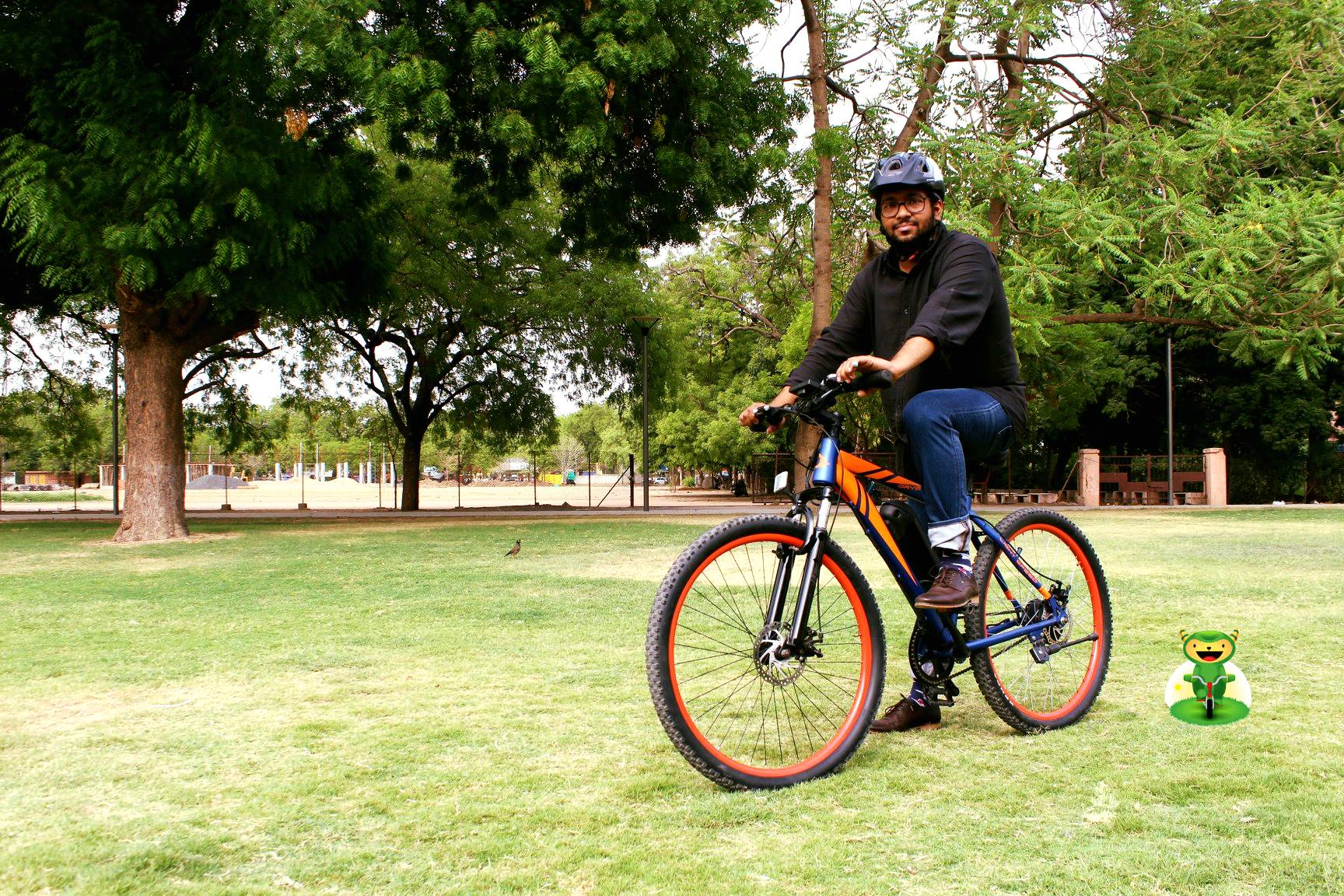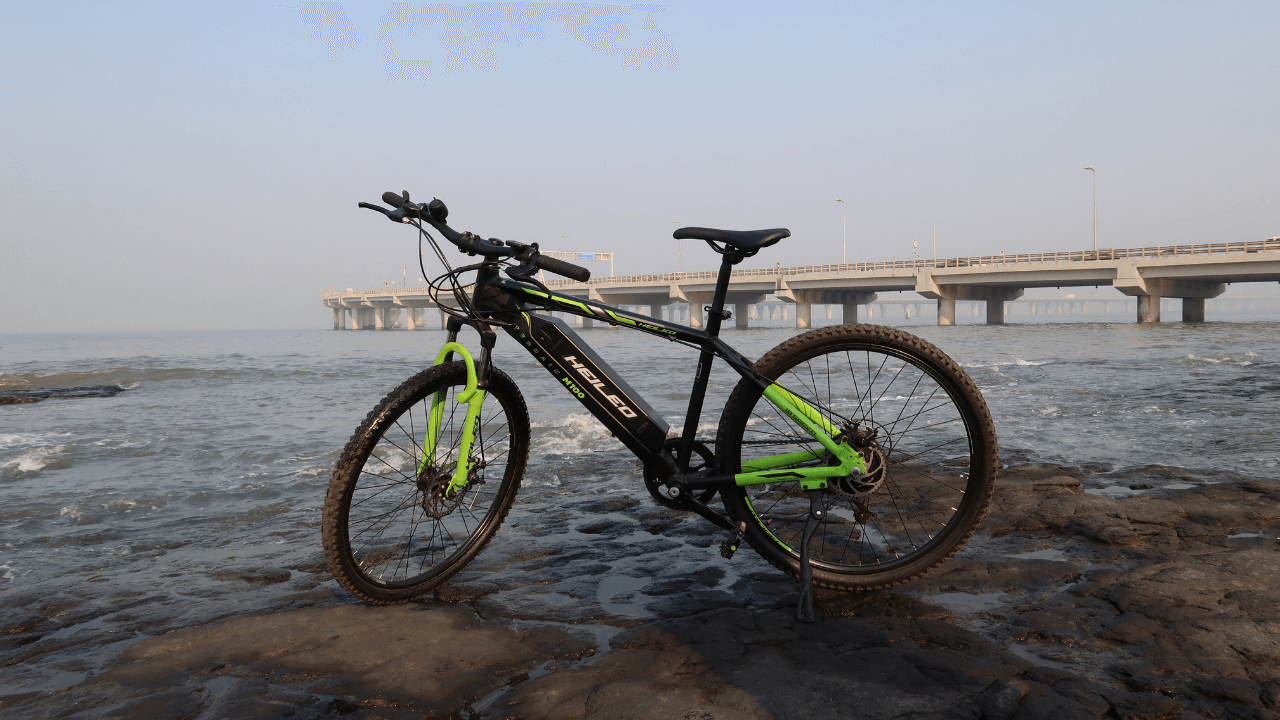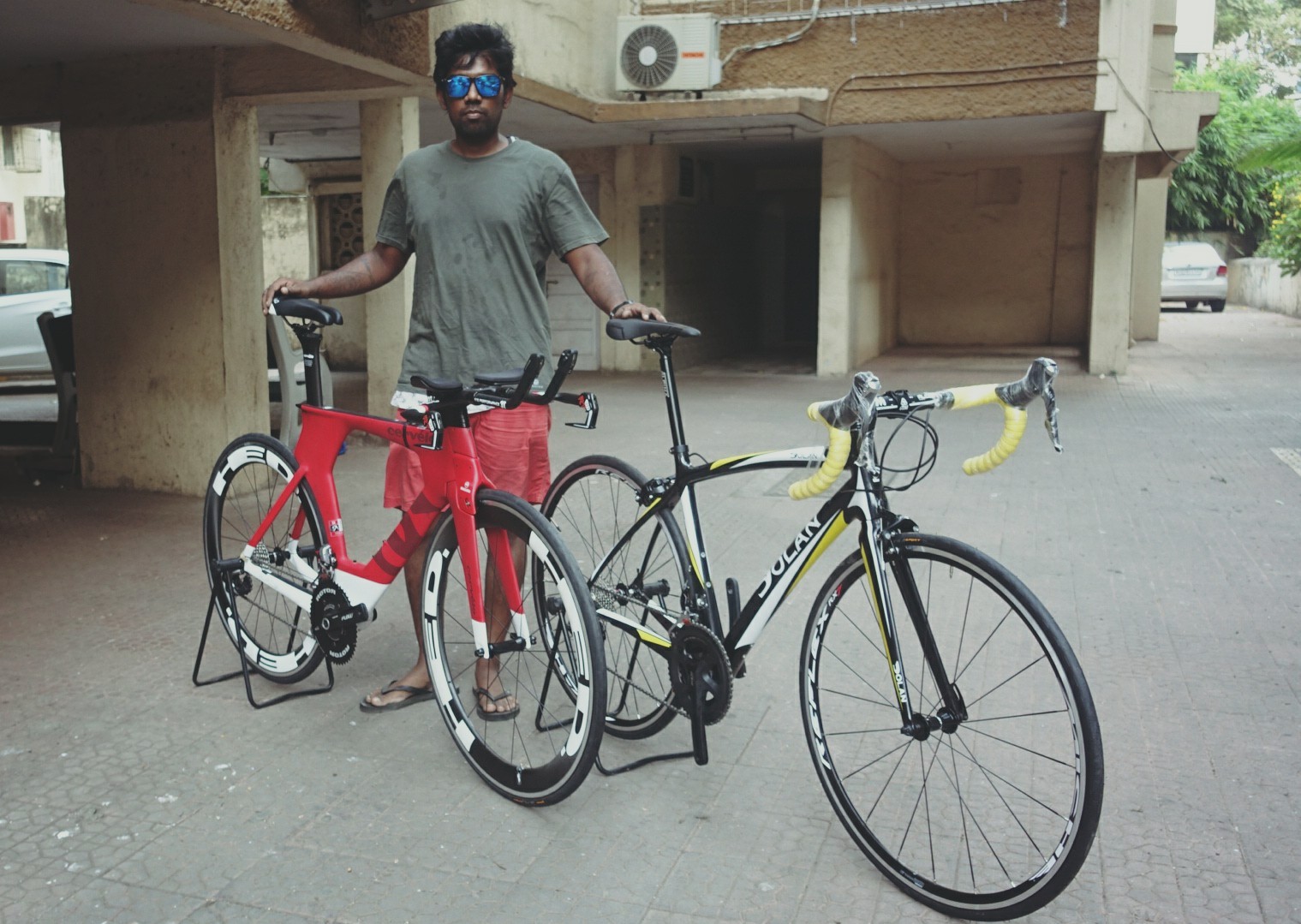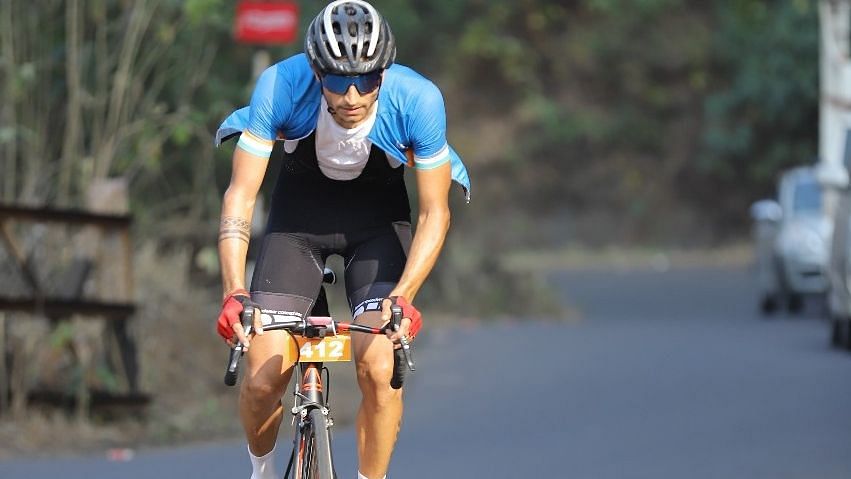1. Three things that bicycle touring has taught (Rubina Soorty)you?
- It has taught me to believe in myself. When faced with a challenge, whether it’s a tough hill, poor weather, a broken bike component or even exhaustion, I have found that as long as I believe in myself I can overcome the challenge.
- To form my own opinions based on what I see, not what I hear. The media portrays certain countries as dangerous and the people there as bad but I have seen for myself that every country I have ridden through has treated me with kindness and respect.
- To live your dreams, not just plan them. The beauty of the world and life unveils itself when you follow your dreams.
2. Any advice for women who would like to tour the world on a bicycle?
Women out there who are thinking about it should definitely do it. I have had the best year and a half of my life. Do not let other people’s fears stop you from getting on your bike and seeing a new place because it only takes an ordinary person to do something extraordinary and you can be that person.
3. When asked Rubina Soorty on what do you have to say when it comes to safety for women?
I think being a solo female cyclist can make you more vulnerable in an extreme case, but honestly, I have felt more safe because of the many people who have offered help to me as a female travelling alone. However, it is still a good idea to trust your instincts and if a situation does not feel right, it probably isn’t. Don’t be afraid to be rude to someone if you feel uncomfortable in a situation and are concerned about your own safety.
4. Do you think India is safe for lone women travellers?
I think India is safe for lone women travellers, but that is talking from a bicycle perspective. I have never felt vulnerable on my bicycle. Sometimes a little frustrated as often in a day a hundred people would ask for a photo but it was all in good heart. Occasionally, a motorist would follow me for a kilometre but I never felt afraid, the person was usually just curious. I had so much help and kindness shown to me in India that at some point it felt like a second home.
5. Given a chance which country would you like to settle down in?
I have travelled through some wonderful countries, but in terms of beauty and peace, I think the country I loved the most was Slovenia. It has clean air, stunning lakes, majestic mountains and no rubbish, with 68% of the land covered in trees. It is a place where you’re sure to feel one with nature and experience inner peace.
6. What are the things pending on your bucket list?
I’d like to go around the world. Also, on the list is to sail to Antarctica.
7. What did you love about India?
What I loved the most is the vibrant and caring people of India. I was astonished at how kind people could be with so many opening their hearts and homes to me. It is their generosity that I will never forget.
8. What is your opinion on the cycling culture in India based on your observations?
I think there are two main types of culture for cycling. The main one still seems to be that the very poor use the single speed bikes as a mode of transport when a motor is too expensive and then the second the more health conscious and environmentally friendly person. This person generally seems to be someone from a middle-class background. There seems to be an increasing growth in recreational cycling or cycling to work, but still it in the early days but great to see the development
I think there exist two main types of cycling culture in India. The prominent one being where the cycle is used as a mode of transport when a motor seems too expensive for those with lesser means. The other one is where the cycle is used by the health-conscious and environmentally friendly, most common among the country’s strong middle class. There has also been a gradual rise in recreational cycling and cycling to work, though still in the early days it’s great to see the development.
9. Which countries have you travelled to and which are the countries you wish to travel to?
I have travelled through England, France, Switzerland, Italy, Slovenia, Croatia, Montenegro, Bosnia, Serbia, Kosovo, Bulgaria, Greece, Turkey, Georgia, Azerbaijan, Iran, United Arab Emirates, Oman, India, Indonesia, East Timor and Australia, next on the list is either New-Zealand or South America.
10. Any other injuries which Rubina Soorty encountered on her tour besides Percy getting injured?
I have fallen off my bicycle a few times, usually due to being clipped in. My last fall came on a day off when a young lad in Australia took me off roading on his father’s mountain bike. I fell off three times and cut my arm, back and leg open. However, nothing too serious. So far I have been lucky. Even when I got hit by a truck in India, it was only my bike that got damaged not me.
11. When asked Ribina Soorty about what’s the story behind the name “Percy”?
Percy’s name is short for both Percivore, my uncles name and persevere, meaning doesn’t give up. Percy was also a green train in one of my favourite cartoons as a child and with my bike being green I thought it was appropriate. Percy also happened to be the name of one of King Arthur’s knights who went in search of the Holy Grail so my bike seems to befit the name.
12. When asked Rubina Soorty about how the bicycle tour helped her answer some of the questions which ran back and forth in her head?
Before I left on the bicycle tour, I didn’t know what answers I was looking for, because I didn’t know what questions I had. However, after travelling half way around the world and learning so much about different cultures, history, politics, food, religion, wildlife I realise there were a lot of questions, I just wasn’t aware of them. Most importantly, on a personal level, it has taught me that as humans we are strong and it only takes stepping out of our comfort zones to realise how strong we truly are.
13. As you have pedaled the world which climate would you prefer to cycle? Summer, winter, or the rain?
Different climatic conditions come with their own pros and cons. While cycling in the cold, you heat up quickly and the pedalling helps you stay warm, however, extreme cold may cause the metal cleats to freeze your feet and water in a bottle can stay frozen all day. Also, rapid loss of body temperature every time you stop is common in the winter. Summertime is great in keeping your muscles warm even when you stop for breaks. However, pedalling in the heat can be hard-work and may lead to dehydration or fatigue. The rainy season to has it’s own charm, but cycling when you’re completely soaked through can be exhausting. However, it is these changes in the weather that make you feel like a part of nature and makes cycling such a joy.
14. Could you share one of your fondest memories associated with your India tour?
My best memory started off as one of my worst. I was hit by a drunk truck driver who turned across my path totally oblivious to me. Fortunately, a kind onlooker helped me by beckoning a rickshaw driver. The driver carried me and my broken bike to the nearest town of Bellary. The onlooker followed all the way on his moped to ensure I was okay and dropped me at a bike shop. Before leaving, he phoned a friend I had stayed with in Hampli the previous night. This friend in Hampli asked another friend who lived in Bellary to meet me at the bike shop. This friend, Babu, hosted me in his home with his family for two weeks on and off whilst my bike was being repaired. They were so kind and wonderful to me that in some ways I felt grateful about the accident for giving me a chance to meet such wonderful people.
15. Would you like to highlight some of the cultural differences you have experienced across your journey?
Culture differs not only from country to country but from town to town as well. Unlike in the west, where most women go out and work, in the Middle east, I found the role of women to be very different and often that of a housewife. In Indonesia, I was aware of how being a European (outside the tourist hot-spots) makes you a celebrity of sorts and people continually stare, want an autograph or photograph with you. In most rural areas of India, I found people to be much more spiritual as compared to the people in England. In the east, a family unit consists of aunties, uncles and cousins, making it a very large support network where work and resources are seen as a collective responsibility with less pressure on a particular individual. Whereas, in the west, a family unit usually consists of only the mum, dad and children. I think as a traveller it is important to constantly remember that though I may not agree with certain norms of another culture or their ideas may seem too far fetched, it does not make those ideas or norms wrong. I have come to appreciate these differences and in turn, developed a better understanding of my own British culture.
16. When asked Rubina Soorty on which languages do you speak besides English? Did touring help you learn any new languages in bits and pieces?
I speak some basic French. On my trip to a new country, I always learn the local greetings, numbers and basics. I also learn how to say, “expensive” as it stops shopkeepers and vendors from trying to overcharge.
17. How Rubina Soorty dealt with the language barrier? Any funny incident you would like to share with us?
When there is a language barrier and all else has failed, I either use google translate or gesticulate with my hands or draw pictures. For example, If I want a place to camp and there is a language barrier, I will draw a tent a moon and do times 1 symbol to indicate camping for one night. In Iran, I wanted to use a lavatory, the person I asked did not understand and thought I wanted to buy one, so he took me to a shop selling commodes.
18. Did you get to enjoy other adventure sports while you stayed with your host?
I have tried my hand at a few adventure sports, kayaking in France down rapids, caving in Montenegro with ropes and head torches, mountain biking off the road in France, Indonesia and Australia. On Previous trips, I have bungee jumped whilst in New Zealand, cliff jumped in Grenada and parachuted in Croatia.
Click here for part 1 of Rubina’s Interview.
Follow Rubina on her journey on her Facebook page Ruby Ride On. The pictures have been taken from her facebook page,
Read more about Rubina Soorty’s journey on her blog Ruby Ride On – One Cycle Of the World
Courtesy: A special thanks to Rubina Soorty for this beautiful interview,
Questions framed by Kailas Patil and Abhishek Tarfe.
Editor: Tracy Alvares







